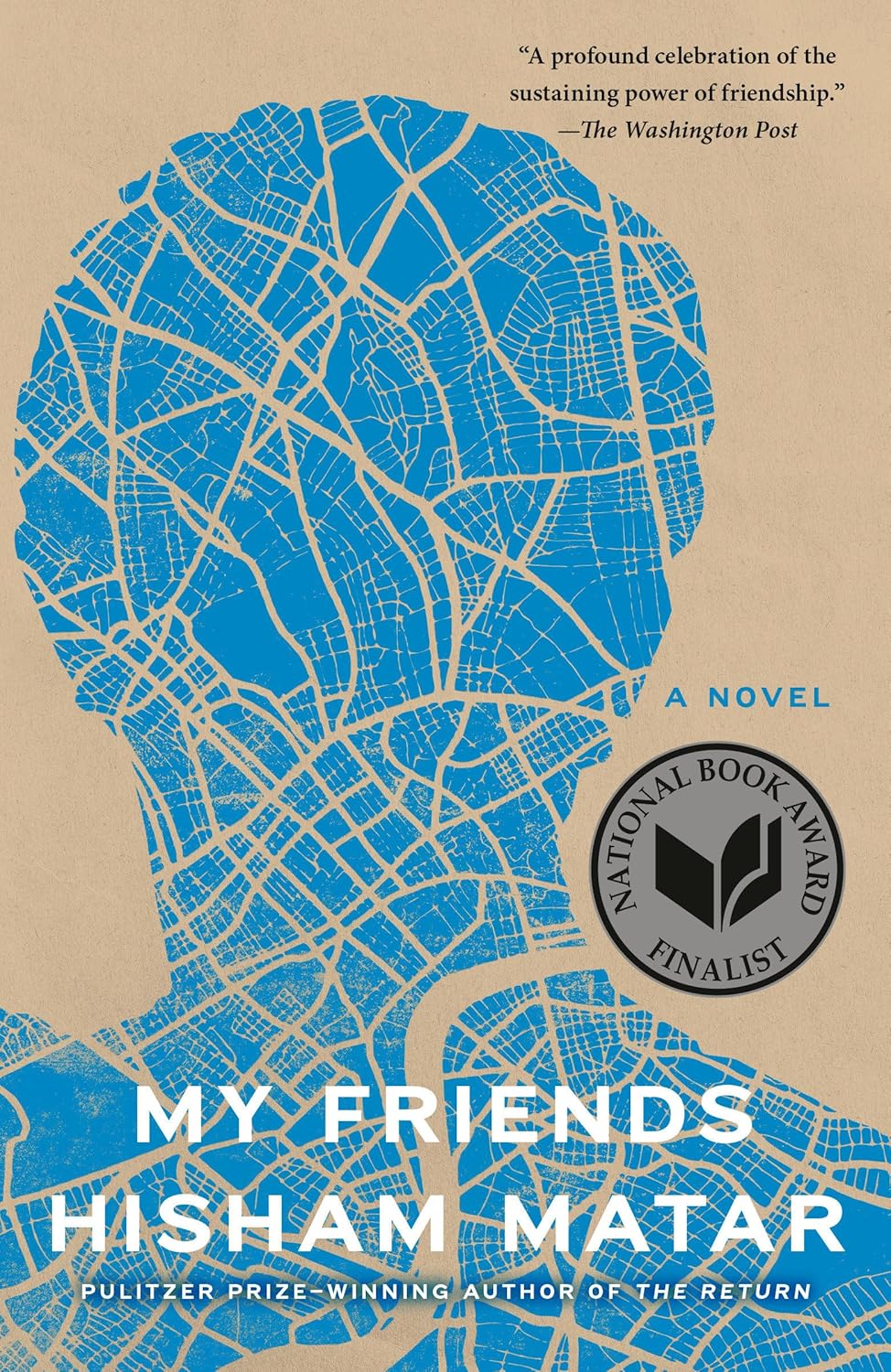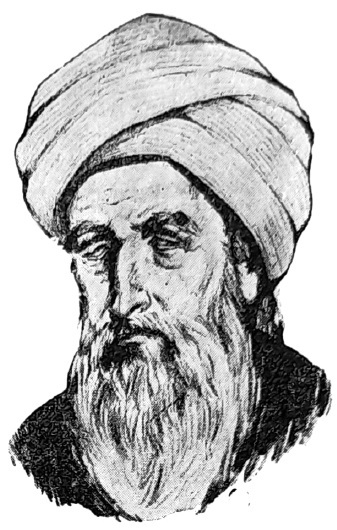Summary | Excerpt | Reviews | Beyond the Book | Read-Alikes | Genres & Themes | Author Bio

A Novel
by Hisham MatarThis article relates to My Friends
 In My Friends by Hisham Matar, the classical Arabic poem The Epistle of Forgiveness (Risalat al-Ghufran) by the Syrian writer Abu al-Ala al-Ma'arri makes multiple appearances. Main character Khaled refers to his copy of the work, given to him by his father when he left Libya for university in Scotland, as "the most precious object I possessed." Later, when applying to study literature at a different college in England, Khaled is asked whether he recognizes a passage read aloud. When he can't place the text, the interviewers tell him it's from Mrs. Dalloway by Virginia Woolf, and express surprise that he hasn't read it. When they ask what he has read, he mentions Seneca, Jean Rhys, and Hosam Zowa (a Libyan writer existing in the world of Matar's book) before trotting out al-Ma'arri, turning the tables on them: "Three hundred years before Dante … he wrote The Epistle of Forgiveness, in which a poet descends to the underworld. Have you really never heard of it?"
In My Friends by Hisham Matar, the classical Arabic poem The Epistle of Forgiveness (Risalat al-Ghufran) by the Syrian writer Abu al-Ala al-Ma'arri makes multiple appearances. Main character Khaled refers to his copy of the work, given to him by his father when he left Libya for university in Scotland, as "the most precious object I possessed." Later, when applying to study literature at a different college in England, Khaled is asked whether he recognizes a passage read aloud. When he can't place the text, the interviewers tell him it's from Mrs. Dalloway by Virginia Woolf, and express surprise that he hasn't read it. When they ask what he has read, he mentions Seneca, Jean Rhys, and Hosam Zowa (a Libyan writer existing in the world of Matar's book) before trotting out al-Ma'arri, turning the tables on them: "Three hundred years before Dante … he wrote The Epistle of Forgiveness, in which a poet descends to the underworld. Have you really never heard of it?"
Abu al-Ala al-Ma'arri was born in the town of Maarat al-Numan in 973 CE. He is believed to have been raised in a mixed-faith community that included different denominations of Muslims as well as Christians, and in a family with open-minded views towards religion. He lost some of his eyesight due to having smallpox as a child, was likely blind by the time he reached middle age, and probably composed work through dictation. Educated by his father, he also studied under a number of well-known scholars. In addition to his poetry, he is known for philosophy and literary criticism. A vegetarian with an ascetic lifestyle, he was a social justice advocate who believed that people should not have children, to spare them from the suffering of life. His pessimistic humanism and critical views on religion were considered controversial at the time, and still sometimes are.
The Epistle of Forgiveness is written as a reply from al-Ma'arri to a letter from the grammarian Ibn al-Qarih. In the work, al-Ma'arri imagines that Ibn al-Qarih has died and entered the afterlife, where he travels through heaven and hell and meets famous figures, including Adam and Eve and dead writers.
As Khaled observes, the plot echoes that of Dante's internationally known Divine Comedy, and an English translation by G. Brackenbury from 1943 even uses the title "A Divine Comedy." The theory that al-Ma'arri's poem may have influenced Dante has been floated but largely dismissed. Translator Gregor Schoeler suggests that it's more likely the two works had a common influence: the Arabic Kitab al-Mi'raj, which depicts Muhammad's ascension to heaven and Islamic views of the underworld. The text had been translated into several European languages in Dante's time, whereas The Epistle of Forgiveness was not then known in Europe. A key difference between The Divine Comedy and al-Ma'arri's work is that while Dante wrote from a sincere religious perspective, The Epistle of Forgiveness appears to contain layers of irony and can be interpreted in multiple ways, with al-Ma'arri seeming at times to mock common beliefs.
Dr. Tom Shakespeare, a public health advocate and sociologist who has analyzed al-Ma'arri's work from the perspective of disability, praises his creations in an interview with ArabLit: "What I hope is that these volumes reach beyond scholars of Islam or the Arab world … The idea that this poet is writing in the eleventh century! Now, I studied Old English at Cambridge, and I read Beowulf, and I read other works of that time, and they are nowhere near the sophistication and the philosophical and dramatic interest of these writings."
Drawing of Abu al-Ala al-Ma'arri from 1961 Egyptian work Sayr mulhimah, courtesy of Wikimedia Commons
Filed under Books and Authors
![]() This "beyond the book article" relates to My Friends. It originally ran in December 2024 and has been updated for the
January 2025 paperback edition.
Go to magazine.
This "beyond the book article" relates to My Friends. It originally ran in December 2024 and has been updated for the
January 2025 paperback edition.
Go to magazine.
Your guide toexceptional books
BookBrowse seeks out and recommends the best in contemporary fiction and nonfiction—books that not only engage and entertain but also deepen our understanding of ourselves and the world around us.